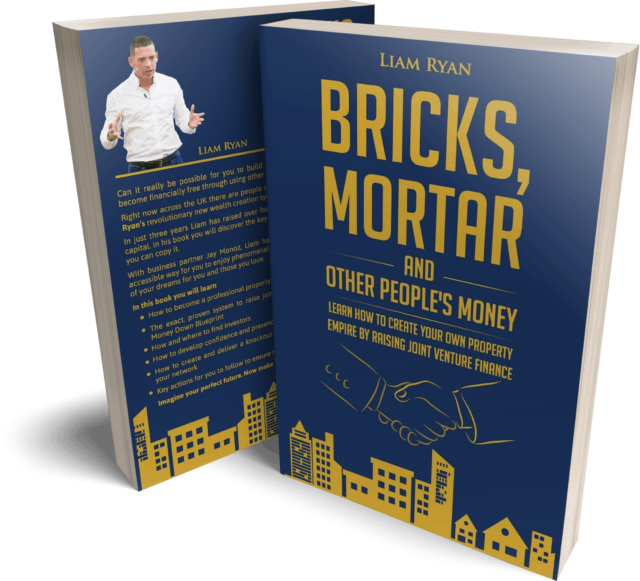Landlord Licensing in the UK - Everything You Need to Know in 2025

If you are letting out your property, you need to keep updated with the legal requirements that come with being a landlord. This can include landlord licensing. In this blog, I will detail everything you need to know about landlord licensing in the UK.
Table of Contents
ToggleWhat is a Landlord Licence?
Since the introduction of the Housing Act 2004, some landlords have needed a licence to legally rent out an HMO (house in multiple occupancy) in England and Wales. Originally, the HMO licence was only required for HMOs that had 3 or more storeys, used 5 or more people, contained two or more households, or shared kitchen and bathroom facilities. Since 2018, all HMOs with 5 people or more, or two or more households, required an HMO licence. Some local councils also introduced selective licensing and required a licence for any privately rented property, even those let to a single-family unit. Some councils also restrict how many HMOs there can be in a specific area.
Who Needs a Landlord Licence?
If you are a landlord who offers their properties for rent in England and Wales, you may need a landlord licence if you are:
- Renting out an HMO with 5 or more people or two or more households.
- Renting out a property within an area subject to selective licencing.
To find out if your area is subject to selective licensing, contact your local council.
Different Types of Landlord Licencing Schemes
Mandatory HMO Licence
The most common kind of landlord licence is a mandatory HMO licence. This is always required for HMOs that have 5 or more occupants forming two or more households. The conditions that must be fulfilled in order to obtain a HMO licence include:
- The house must be suitable for the number of occupants – this could include adding or improving bathroom and kitchen facilities
- The property manager is ‘fit and proper’ i.e. doesn’t have any criminal record or breaches of codes of practice
- The gas safety certificate must be sent to the council every year
- An electrical installation condition report must be provided
- Smoke alarms must be installed and maintained
- Safety certificates for electric appliances must be provided to the council if requested.
Some local councils require all HMOs to be licenced, no matter the size or how many tenants there are. Always check with your local council to find out the local regulations around HMOs and rental properties.
Local councils can also restrict how many HMO licences are granted within a certain area to make more housing available for families, e.g. in cities with a high student population. Once a certain amount of HMO licences have been granted, there will be no more licences issued for that particular area.
Selective Licencing
Selective licensing is when a local authority requires a licence for any privately rented property. Selective licensing usually applies to certain areas within a council’s jurisdiction. If a council wants to introduce a licensing scheme that covers 20% or more of the area, or 20% or more of the rented homes within their area, they will need to apply for government permission to do so. Selective licensing sometimes applies to business tenancies, agricultural holdings and holiday lets, although usually applies to residential rental properties. Selective licencing is often introduced in areas which have:
- Low demand for housing
- Problems caused by anti-social behaviour
- Poor housing conditions
- High levels of crime and deprivation
- High levels of migration
How To Obtain a Landlord Licence?
YOu can apply for a landlord licence with your local authority – you can often visit their website and submit a licence application online. You can also find out what licence exactly you will need, if you do need one at all. Landlord licences are not free – the exact cost will depend on how many properties you are renting out in the area (licences are issued per property, not per landlord, so you may need several) and other factors. Costs can vary between £400 to over £1000 and last for up to 5 years before they need to be renewed. You may need to submit additional documentation, including proof of your identity and address, gas and electric safety certificates for your rental properties, and proof of landlord insurance. HMO licences may require an inspection of the property to be carried out by a council representative before the licence can be issued to make sure that it fulfils all requirements.
Benefits of Landlord Licensing
The benefits of obtaining a landlord licence are simple – it can be against the law for you not to have one and you could be subject to fines. Not every property needs to have a landlord licence to be let out, so always consult with your local authority to find out exactly what licensing laws apply to you.
What Happens if You Don’t Get a Landlord Licence?
If your local authority requires you to get a landlord licence, and you do not get one or allow yours to expire, you could face a fine of up to £30,000. Illegally unlicensed landlords can also be charged with a rent repayment order, in which they would have to return rent payments to tenants, or even get slapped with a property rental ban. This would prohibit them from renting out property and will be added to the rogue landlord database which is shared with other local authorities. Obviously, you don’t want any of these things to happen, so it’s important that you find out what licensing laws apply in your area.
Even if landlord licensing does not currently apply to you, it is important that you keep up to date with any new rules that get introduced in your area and regularly check for updates to national laws. Many local councils have an ‘accredited landlord’ scheme, which means they will inform you of any upcoming changes and may also offer a discount on any required licences. Being an accredited landlord can offer a level of reassurance to tenants too as it shows that the tenancy will be managed professionally.
Get the inside line on property investing and being a landlord with Assets For Life’s FREE property events – sign up here and meet me, Liam J Ryan, plus other experts in property investment.
You May Also Be Interested In...

Best Property Investment Courses in the UK
Discover top-rated UK property investment events, bootcamps, and mentors, including Martin Roberts, Stuart and Scarlette

How to Make a Million Pounds from Property Investing
Discover how to earn £1 million through UK property investing with practical strategies and expert

How To Grow A Property Portfolio – Free Online Training
Grow your UK property portfolio from scratch with expert tips, creative strategies and free online
Featured Property Investment Events & Courses
The Property Deal Packaging Summit
The Property Millionaire Bootcamp
The Serviced Accommodation Bootcamp





